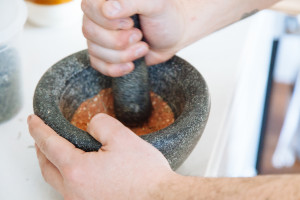I stumbled upon this article the other day. “30 things every grown ass person should stop doing by the time they turn 30”. In the post it lists these behaviors that all grown adults should cease as they turn 30 years old. I found I missed the cut on a few of the author’s requirements for being a “grown ass” 30 year old man. Some I didn’t attain when I was in my early 30’s. And a couple I still don’t measure up to now that I am in my very late 30’s.
Maybe I missed the message somewhere. “Adulthood starts at 30 years old”? Whatever that means. I thought of my daughter and how we are taking away her pacifier after her 4th birthday. What if she still clings to it? Is it because I wasn’t able to give up on some of my own child like behaviors after I turned 30? I jest. But where does it end?
How do we know what we “should” do and when we should answer to what we “need” to do? Confused? Let’s look at the differences and where we end up causing ourselves more stress than is really necessary.
Ways you “should” yourself
“Shoulds” imply you are doing something based on an expectation, or obligation, not doing what you would like to do.
Common things you might tell yourself you “should” do:
-
You “should” get a “good job”
-
You “should” be polite to everyone at all times
-
You “should” try our hardest at everything and never give up
-
You “should” appreciate our job even though we don’t like it
-
You “should” accept our situation in life and be thankful for it
Who says? Usually it’s a narrative that we’ve come to accept as the norm, or as a fact. It’s basically a by product of societal thinking or a “that’s just the way that it is” mindset.
“Wait a second!”, you are saying. “There are absolutely things I should do such as take a shower and pay my bills!” Yes, you are correct. However, these aren’t things we “should” do. These are likely tasks that we “need” to do. I’ll get to that.
(More on “all or nothing” thinking and what it does to you)
The person you “should” be
The “shoulds” here imply that you have to be a certain way or a certain type of person.
 Ways you possibly tell yourself you “should” be:
Ways you possibly tell yourself you “should” be:
-
You “should” be a “good” parent
-
You “should” be a “good” person
-
You “should” be a “happy” person
-
You “should” be a “hard working” person
-
You “should” meet other people’s requests if they need help
Do you see a pattern in these? All of these “shoulds” are subjective. They have no real definition to what they are. What’s a “good” parent? What’s a “good” person? How do we know when we’ve tried “hard enough”? What does it mean to be a “polite” person? And when is it ok to assert ourselves even though someone might take offense to us?
All of these “shoulds” are impossible to attain as long as we are using the term “should”. “Shoulding” yourself to be a “good” person, or a good “parent”, for example can lead to excessive stress, frustration, and resentment towards your situation.
Maybe we “should” question why we strive for a definition of who we are that has no real answer.
What you “need” to do and who you “need” to be
Here’s where personal choice comes in. Our needs are based on our values. If you decide you “need” to do something, it’s because that action or choice is vital to you in meeting a value that you hold.
-
“You should pay your bills”. No, you need to pay your bills. Why? Because you likely value having a home or decent credit, for example.
-
“You should visit our in-laws”. No, you need to visit your in-laws. Why? If you value your family it’s something that you do actually have to suck it up and do (at least occasionally).
-
“You should just deal with the job you have because at least it’s a job” No, you need to make due with your current job because it’s necessary to have income because you value our standard of living. (Read more on my thoughts of knowing when it’s time to quit your job)
-
“You should be a good parent”. No, you need to be a caring parent because you value our children’s well being. (Want to be more realistic in your expectations of yourself as a parent? Check out this article. “A new resolution for wives: Chillax already”)
-
“You should be good person”. No, you need to be certain ways with people because you value your relationships with others. There are exceptions, however. (Read more about the difference in being aggressive vs. being assertive)
Finding balance isn’t easy
Finding the balance in life is hard. Knowing when to fully engage and when to let go. Knowing when to relax and when to push yourself. In my next post, I’ll outline some strategies to help in dealing with the stress and anxiety that can come with struggling to find this balance that we all deal with.


Leave a Reply